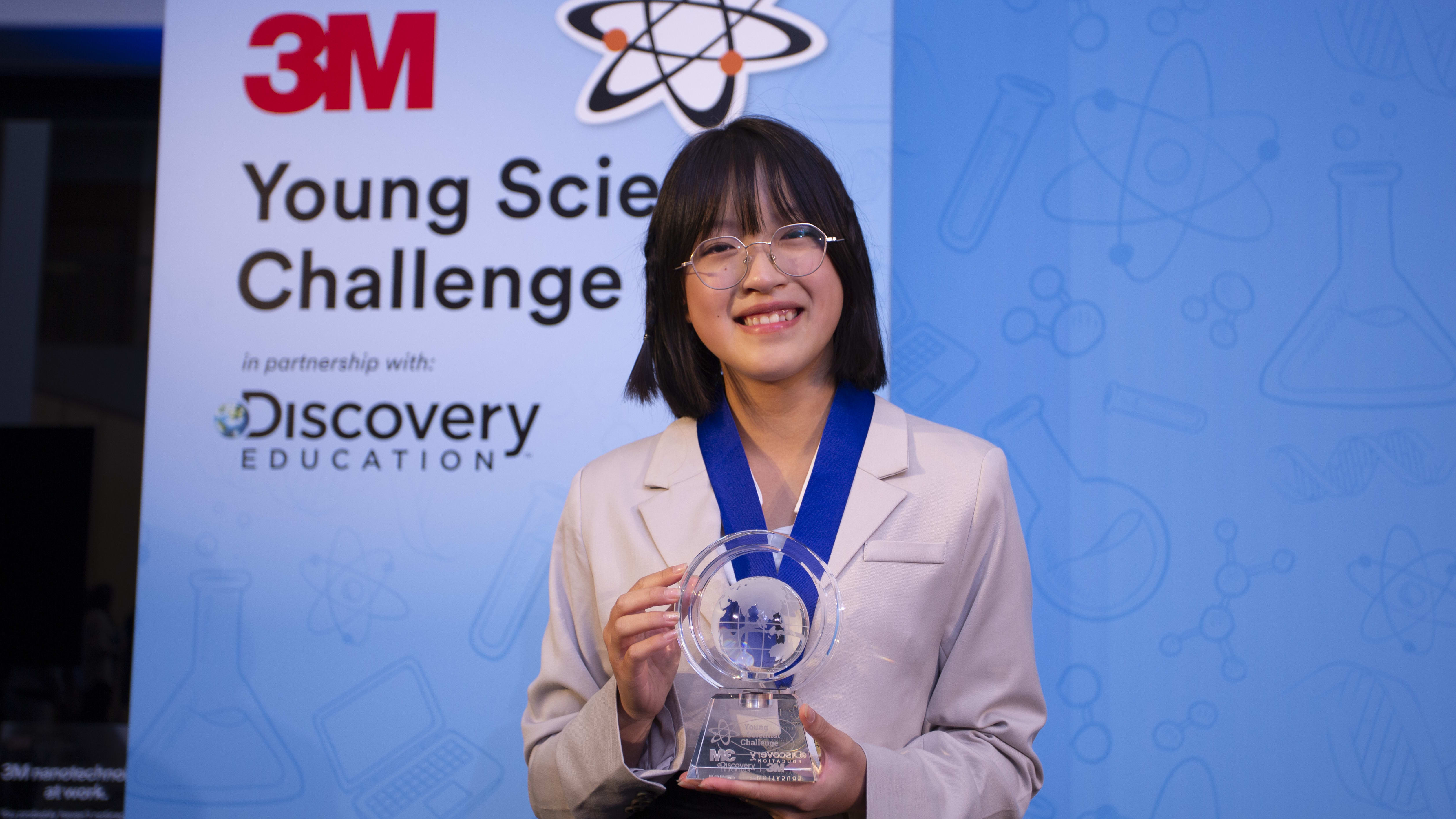Meet Leanne Fan, America's Top Young Scientist


A free daily email with the biggest news stories of the day – and the best features from TheWeek.com
You are now subscribed
Your newsletter sign-up was successful
Leanne Fan has always been an inventor, starting in the first grade when she made contraptions out of toothpicks and marshmallows.
Now 14, the San Diego resident has stepped up her game with the Finsen Headphones. These antibiotic-free headphones aim to use blue light therapy to detect and treat mid-ear infections. It's a low-cost option to treat a major problem — worldwide, there are 700 million cases of mid-ear infections every year, and nearly 21,000 deaths. Fan estimates that the Finsen Headphones could potentially reduce the number of kids who suffer hearing loss after a mid-ear infection by up to 60 percent.
Fan was inspired to create the headphones three years ago while learning about Niels Finsen, who won the Nobel Prize in 1903 after inventing light therapy for skin tuberculosis. "I thought, 'This is an amazing idea, I can apply it to something else in my daily life,'" Fan told The Week.
The Week
Escape your echo chamber. Get the facts behind the news, plus analysis from multiple perspectives.

Sign up for The Week's Free Newsletters
From our morning news briefing to a weekly Good News Newsletter, get the best of The Week delivered directly to your inbox.
From our morning news briefing to a weekly Good News Newsletter, get the best of The Week delivered directly to your inbox.
She started working on the headphones, tweaking things here and there and switching to audio machine learning, before entering the Finsen Headphones in the 2022 3M Young Scientist Challenge. In October, she took home the top prize, earning the title of America's Top Young Scientist and $25,000. She was paired with a 3M research specialist who mentored her and guided her as she tested and modified the headphones.
Fan is optimistic that the Finsen Headphones will be able to help people in the near future. "The great thing is I'm not making a medicine you have to eat, so it's a lot easier to get approved," she said. "I want to get into cadaver tests to make sure it's still safe and on actual eardrums, then human studies, then a patent, and then work with people to make it a business."
Being part of the 3M Young Scientist Challenge was "definitely the best part of my year," Fan said. "I got to meet scientists that are my age and going for their dreams too, and made some friends." She hopes to inspire other young women who want to go into STEM or become inventors.
"Even a small idea you can move it really far," she said. "I had an idea to use blue light to kill bacteria and three years later, I'm here."
A free daily email with the biggest news stories of the day – and the best features from TheWeek.com
Catherine Garcia has worked as a senior writer at The Week since 2014. Her writing and reporting have appeared in Entertainment Weekly, The New York Times, Wirecutter, NBC News and "The Book of Jezebel," among others. She's a graduate of the University of Redlands and the Columbia University Graduate School of Journalism.
-
 The environmental cost of GLP-1s
The environmental cost of GLP-1sThe explainer Producing the drugs is a dirty process
-
 Nuuk becomes ground zero for Greenland’s diplomatic straits
Nuuk becomes ground zero for Greenland’s diplomatic straitsIN THE SPOTLIGHT A flurry of new consular activity in the remote Danish protectorate shows how important Greenland has become to Europeans’ anxiety about American imperialism
-
 ‘This is something that happens all too often’
‘This is something that happens all too often’Instant Opinion Opinion, comment and editorials of the day
-
 5 recent breakthroughs in biology
5 recent breakthroughs in biologyIn depth From ancient bacteria, to modern cures, to future research
-
 Blue Origin launches Mars probes in NASA debut
Blue Origin launches Mars probes in NASA debutSpeed Read The New Glenn rocket is carrying small twin spacecraft toward Mars as part of NASA’s Escapade mission
-
 Dinosaurs were thriving before asteroid, study finds
Dinosaurs were thriving before asteroid, study findsSpeed Read The dinosaurs would not have gone extinct if not for the asteroid
-
 SpaceX breaks Starship losing streak in 10th test
SpaceX breaks Starship losing streak in 10th testspeed read The Starship rocket's test flight was largely successful, deploying eight dummy satellites during its hour in space
-
 A rat infestation is spelling trouble for the almond industry
A rat infestation is spelling trouble for the almond industryThe Explainer The infestation has affected at least 100,000 acres in California
-
 Rabbits with 'horns' sighted across Colorado
Rabbits with 'horns' sighted across Coloradospeed read These creatures are infected with the 'mostly harmless' Shope papilloma virus
-
 Lithium shows promise in Alzheimer's study
Lithium shows promise in Alzheimer's studySpeed Read Potential new treatments could use small amounts of the common metal
-
 Scientists discover cause of massive sea star die-off
Scientists discover cause of massive sea star die-offSpeed Read A bacteria related to cholera has been found responsible for the deaths of more than 5 billion sea stars
